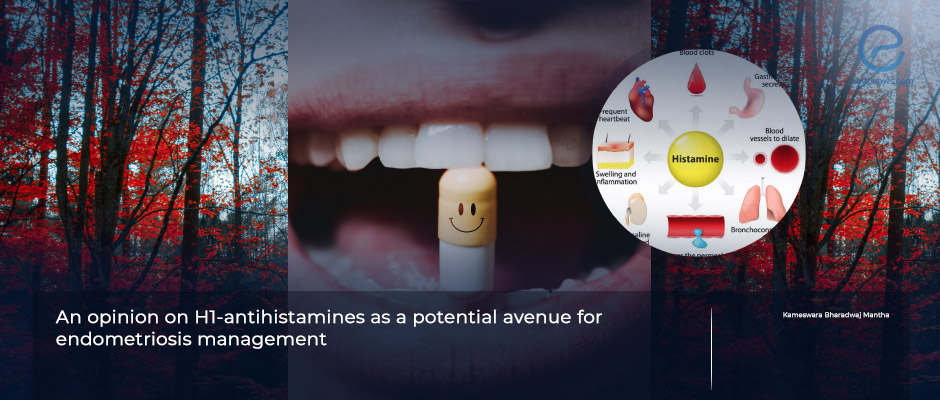Could H1-antihistamines be beneficial in endometriosis management ?
Dec 12, 2023
A potential hot topic in endometriosis management : H1-antihistamines
Key Points
Highlights:
- Endometriosis is currently regarded as a chronic inflammatory process due to the increased prevalence of inflammatory mediators. There is a close relation between inflammatory mediators, and estrogenic hormones, along with immune cells in the pathogenesis and persistence of endometriotic lesions.
Importance:
- H1-antihistamines have various anti-inflammatory effects via several pathways, including intercellular adhesion molecule 1, tumor necrosis factor-alpha, and nuclear factor kappa B.
- This relation raises a question on the beneficial effects of H1-antihistamines in endometriosis, however, investigations into its direct use in this context do not exist.
What’s done here:
- This is a “clinical opinion” paper discussing the importance of chronic inflammation, endometriotic lesions, and the potential beneficial effects of H1-antihistamines.
Key result:
- The research communities should consider H1-antihistamines additionally to established hormone regulatory modalities as a potential therapeutic option for endometriosis management.
Lay Summary
K. B. Manthra, PhD, a postdoctoral researcher from the University of Minnesota has written a “clinical opinion” in a recent issue of the periodical American Journal of Obstetrics and Gynecology, Global Reports.
Endometriosis is currently regarded as a chronic inflammatory gynecologic process among women of reproductive age. This ailment causes many symptoms affecting the quality of life and mental status of many women worldwide. There is a close relation between inflammatory mediators, and estrogenic hormones, along with immune cells in the pathogenesis and persistence of endometriotic lesions.
There is mounting evidence for several inflammation-mediated pathogenesis in endometriosis, with elevated levels of proinflammatory molecules like intercellular adhesion molecule1, tumor necrosis factor- alpha, and nuclear factor kappa B.
H1-antihistamines (H1-As) are medications that block the action of histamine at the H1 receptor level and thus help relieve allergic reactions. These medications readily inhibit the effects of the proinflammatory molecules mentioned above.
However, research regarding the direct use of H1-As in endometriosis is absent currently. Correlative evidence pointing to the potential positive effects of H1-antihistamines for endometriosis management exists. The research communities should consider H1-As in addition to established hormone regulatory modalities, as a potential therapeutic aspect for endometriosis management.
Research Source: https://pubmed.ncbi.nlm.nih.gov/37941601/
Endometriosis H1-antihistamines inflammation potential research

